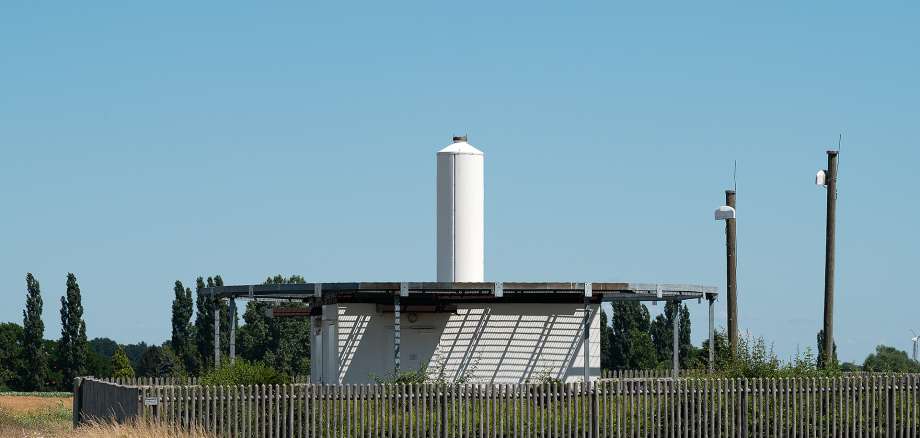By 2030, DFS, the German air navigation service provider, will have converted all approach and departure procedures at the more than 60 German airports to satellite-based area navigation. Due to this move, DFS has already been able to decommission 15 ground-based VORs (very high frequency omnidirectional range) in recent years, and 13 more are to follow by 2030. The German Federal Ministry for Economic Affairs and Energy (BMWi) is providing €14 million of funding to modernise the remaining conventional navigation facilities. As a result, this will facilitate the approval of more wind turbines in the protection zones in place around navigation facilities.
VORs are ground-based navigation facilities that are indispensable as back-up infrastructure for safe flight operations, even in the age of satellite navigation. Currently, DFS still operates a number of conventional facilities (CVOR). In recent years, however, Doppler VOR (DVOR) has proven to be a more robust variant in the face of interference from wind turbines. DFS has already upgraded more than two thirds of its facilities to this technology across Germany. The BMWi has now provided €14 million for the conversion of the remaining CVOR. After the upgrade, more wind turbines can be approved in protection zones surrounding DVOR facilities.
Peter Altmaier, the Federal Minister for Economic Affairs and Energy, said: "The conversion of the VORs will free up additional land for the erection of wind turbines with a capacity of around 700 megawatts. Thanks to our support, DFS can start the upgrade before the end of this year. Last year, the National Metrology Institute of Germany (PTB) determined the interference potential of wind turbines more precisely. This made it possible to approve additional wind turbines with a capacity of around 700 megawatts in the vicinity of VORs.
"In the future, DFS will no longer need the majority of the 55 VORs," said Friedrich-Wilhelm Menge, Chief Technology Officer and member of the DFS Executive Board. With the use of satellite navigation for approaches and departures as well, only one third of today's VORs will be needed – as backup infrastructure in case GPS data are not available. “DFS is supporting the expansion of wind energy wherever navigation accuracy is not affected and the state of technology allows. The BMWi funding is helping us on our path to making targeted investments in more robust technologies. This will allow more wind turbines to be built. I am pleased that I can contribute to the promotion of alternative energy sources with DFS," said Menge.
Wind energy can now be better reconciled with an interference-free ground-based navigation infrastructure for airspace users. Wind turbines can distort the signals radiated from navigation facilities. Therefore, a protection zone of 15 kilometres is still put in place around DFS ground-based navigation facilities. Within this zone, planned wind turbines are subject to an assessment. Due to the high number existing of existing wind turbines, this cannot be reduced. To date, 2,100 wind turbines have already been approved in DFS protection zones. Thanks to technical modernisation and a new method of calculating the potential interference, even more wind turbines can be erected in the protection zones of navigation facilities in the future.
Planned periods* for the conversion
The chronological sequence of the conversion of CVORs into DVORs in the period from 2021 to 2025 is determined by the successive introduction of satellite-supported flight procedures at the more than 60 German aerodromes.
| Location CVOR | Planned year of conversion |
| Nürnberg | 2021 |
| Köln/Bonn | 2021/22 |
| Düsseldorf | 2022 |
| Frankfurt am Main, Charlie | 2023 |
| Nienburg | 2023 |
| Frankfurt am Main, Metro | 2024 |
| Rügen, Trent | 2024 |
| Magdeburg | 2025 |
* If the operational framework changes, the timing of the conversions may need to be adjusted.
Downloads
Media contact:
Anja Naumann
Telephone: +49 (0)421 5372-116
E-mail: presse@dfs.de
DFS Deutsche Flugsicherung GmbH, the German air navigation service provider, is a State-owned company under private law with 5,600 employees as at 31 December 2020. DFS ensures the safe and punctual flow of air traffic over Germany. Before 2020, around 2,200 air traffic controllers guided up to 10,000 flights in German airspace every day, more than 3 million movements every year. The company operates control centres in Langen, Bremen, Karlsruhe and Munich as well as control towers at the 15 designated international airports in Germany. The subsidiary DFS Aviation Services GmbH markets and sells products and services related to air navigation services, and provides air traffic control at nine regional airports in Germany and at London Gatwick Airport and Edinburgh Airport in the UK. R. Eisenschmidt GmbH is another DFS subsidiary which markets publications and products for General Aviation. Kaufbeuren ATM Training (KAT) is responsible for training military air traffic services personnel. DFS has been working on the integration of drones into air traffic since 2016 and has set up a joint venture, Droniq GmbH, with Deutsche Telekom.
